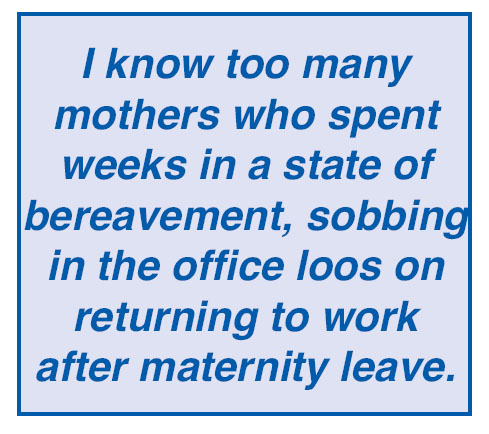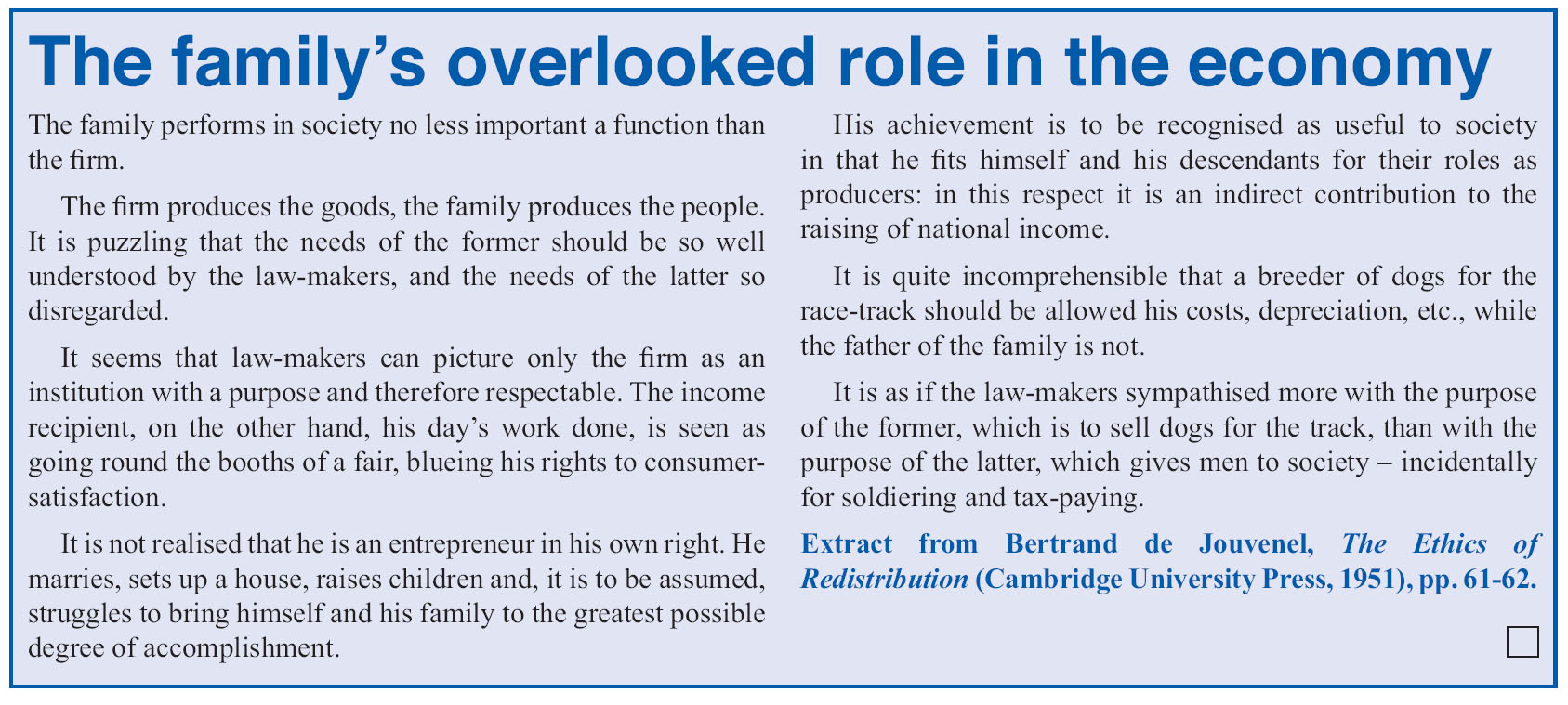Misery of the Childcare Generation
by Mary HarringtonThe London Times reports that a chain of nurseries has invested in "frustration toys" for children prone to biting. The Tops Day Nurseries operations director said: "The children learn that if they get the sudden desire to bite they can select a teething toy or similar to bite on to release the urge."
With more than three-quarters of UK mothers of dependent children in paid work, non-maternal childcare is overwhelmingly the norm for young children in this country, and it makes its impact, at a mass scale, on their development. Decades of research show that maternal attachment – meaning the strength and security of the bond between mother and young child – is of crucial importance in laying the foundations for psychological well-being in later life. We have known since 1997 that children spending more than ten hours a week in poor quality childcare are at increased risk of for unhappiness and insecurity.
That children left in "industrial" childcare settings (however committed individual staff may be) are likely to be less secure than those cared for by a loving mother at home will not come as a shock to readers of The Conservative Woman.
What is disturbing is the rising prevalence of nursery behaviour indicating infants' frustration and unhappiness. It suggests an epidemic of infant misery across the country as barely-verbal pre-schoolers shuttle between screen time at home as their overworked parents scrabble to complete domestic chores around full-time jobs, and sometimes chaotic nursery settings which function less as caring environments for development than holding facilities for children whose parents cannot afford to look after them themselves.
Stones would weep for these poor babies. For their mothers as well: I know too many women who spent weeks in a state of bereavement, sobbing in the office loos on returning to work after maternity leave.
 Eventually, those mothers became accustomed to suppressing
the visceral desire to be physically close to their baby (for a
12-month-old is still a baby). Presumably their babies adjust –
at whatever cost – as well. But for the most part, these sobbing
mothers are returning not to fulfilling careers but to mundane
jobs. They have little choice: the alternative is not staying at
home with their baby but having their home repossessed.
Eventually, those mothers became accustomed to suppressing
the visceral desire to be physically close to their baby (for a
12-month-old is still a baby). Presumably their babies adjust –
at whatever cost – as well. But for the most part, these sobbing
mothers are returning not to fulfilling careers but to mundane
jobs. They have little choice: the alternative is not staying at
home with their baby but having their home repossessed.
The conservative stance on these matters has for some time been to see the problem in terms of women's needs (not babies' needs) and their assumed desire and priority for fulfillment via the workplace.
Now too much screen time and the pressures on working parents, which means they are not spending time talking to their children, are blamed for the rise in children's problems communicating.
Seeing the situation through this lens alone ignores the way public policy, from left and right, has been falling over itself for years to put the entire population – male, female, young and old – under this pressure by driving them out of the home and its purported "economic inactivity" and into GDP-boosting employment instead.
To glance past this and place the blame solely on mothers, as
individuals, for the misery of their babies in industrial childcare
is at best wilful blindness and at worst a kind of sadism. Where
are the voices in our political discourse who are unafraid to
stand up for mothers and mothering and say that some things
matter more than GDP? That top of the list is family life and
especially the needs of young children? ![]()
Mary Harrington is a mother and political blogger. Her article is from the UK online journal, The Conservative Woman (October 10, 2019). Her website is SparrowsAndNightingales. com

